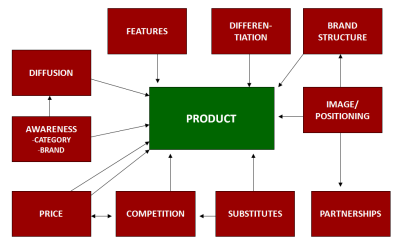Starting an online business is a great way to test your skills as an entrepreneur and sharpen them for less money than opening a brick & mortar operation. Because of the low cost of entry, there are plenty of less-than-professional-looking sites out there, but there are just as many people starting businesses that they could not have otherwise, who are now in the process of receiving regular cash flow.
There are 3 types of businesses we’ll discuss here:
- Article/Blog-based businesses
- Product/Service Sales
- Hybrid
Content-Driven Sites

Whole Businesses, like those run by Asa Ghaffar, earn cash by providing content. Other examples include Gawker and CNN.
There are some programs that allow you to start a website for free, and you should explore them, but for an investment of under $1000, many people are building professional-looking sites and buying the content from seasoned writers.
One great success story is that of Asa Ghaffar. Mr. Ghaffar is a former banker who left the finance industry and began writing about it. After a few years, and thousands of online articles, he decided to start running his own sites instead of writing for those owned by other people.
If you were to view his Formal Work Attire site that is geared toward professional women, and another for men, you will notice that there are advertisements on the pages. This is the result of him having created enough traffic to merit them being monetized.
Now, some people will read this and then want to replicate it, but he does not simply start a website and then place ads on them; he builds the site up, gaining hundreds or thousands of unique visitors a day. Some of those visitors see an ad and redirect themselves away from his pages, and he is paid for this.
The alternative to offering information to people is to sell them something.

Getting products to market may seem simple, but just like providing content, a good product is not all there is to the process.
Product/Service-Driven Sites
The Kleer-Fax site is a product-driven one that has recently began offering blog posts. If we can help you with our blog, we love that, but our main objective is to gain more traffic so that people find their way to our legal indexes and other products. If you’ve found your way here, but have never used one of our products, then this should serve as an example for why you might want to consider having a blog, even if it’s not what your business is all about.
Other examples include those for lawyers and accountants, as well as that of the Scough fashion company, which makes scarves with filters for healthier breathing, and South n’ France, a dessert maker in Wilmington, NC. At the latter’s site you can view videos of them making their desserts, as well as read blog posts that center around times to give great treats (particularly from their store) to people you care about.
One site that is in the process of converting from being a content site to that of a product site is Back in the USA, which was started by a gentleman in Colorado named Phil Davis. Mr. Davis is a true patriot and he wants people to know about the importance of American companies, which is why we feel fortunate to have been listed on his site after connecting on Twitter. Along with our basic information he also listed 10 of our products, noting the retail prices, which we imagine he will be happy to beat once he begins carrying our line!
Hybrid Sites
The ideal business model, it seems, is one where people come to your site for what they can learn, as well as what they can purchase. This can be found with Mental Floss where you can not only read interesting articles and take quizzes for free, but also buy t-shirts, books, and a subscription to their magazine.
When you create a site that people love to come to for the articles, they will naturally end up making purchases.

Find out why the chicken crossed the road, and perhaps pick up a cool t-shirt, too, at Mental Floss!
Having said this, it is important to understand that just because anyone can start a website, not everyone is willing to commit to the work required to become successful. Going back to Asa Ghaffar, who was noted in the first section, he promotes his sites on social media, works to understand how to improve their Google ranking, and diligently adjusts to the requirements of running a site, just as he would if he owned a more traditional business. In fact, when we reached out to him to see if we portrayed him accurately, he replied with some guidance on how to make this blog post more search engine friendly, stating that it needs to be closer to 1,000 words and that the title – originally “Starting an Online Business” – was too competitive, and that we’d be buried among hundreds of other articles with the same title carrying those keywords. His advice was very helpful, but it’s just the tip of the iceberg. If you’re going to start a business on the web, it may not require a lot of money, but it’s still going to require plenty of work.

